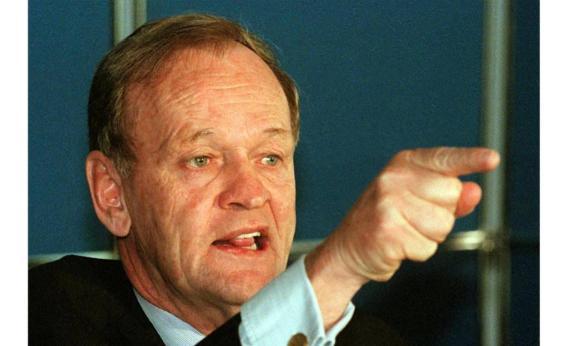Daniel Mitchell has an illuminating, albeit ill-informed post, challenging Keynesians to explain how Canada’s economy managed to grow in the nineties during the Crétien-Martin era of spending cuts.
Part of the answer is that the nineties were good times in a lot of places thanks to technology boom. But if you specifically want to know about Keynesian macroeconomic stabilization policy, Canada followed the playbook perfectly—which is exactly what you would expect from a center-left government. What Keynesian theory says about the impact of the budget deficit on economic growth is that a country like Canada with a stable inflation rate and relatively high interest rates should cut its deficit. By cutting the deficit, it’s possible to reduce interest rates without sparking inflation. That boosts investment, exports, and durable goods purchases.
What’s interesting to me is that right-wing types in the United States like to use Canada as their example of expansionary austerity when the United States of America did the exact same thing at the same time. The problem with citing US fiscal policy in the nineties, I suppose, is that it was undertaken by a Democratic administration and it involved tax hikes as well as spending cuts. But guess what? Canada’s deficit reduction was undertaken by a Liberal administration and it involved tax hikes as well as spending cuts. It was the same thing on both sides of the border, and in both cases it’s in line with Keynesian predictions. The nineties experience should be a challenege to “supply-side” theory and anti-tax dogma, not to Keynesian ideas about fiscal policy.
